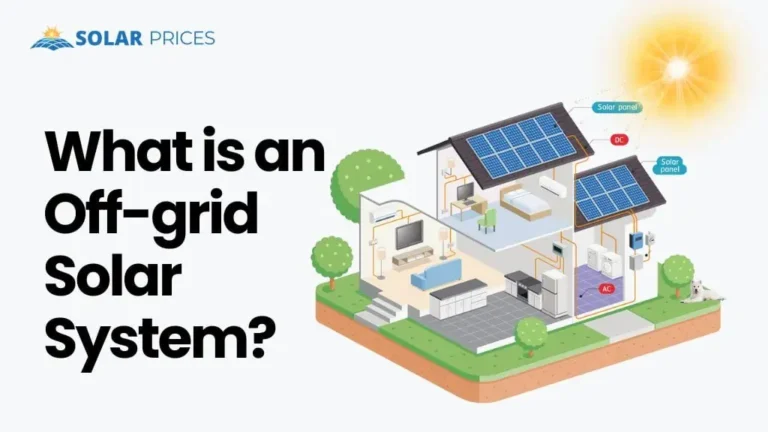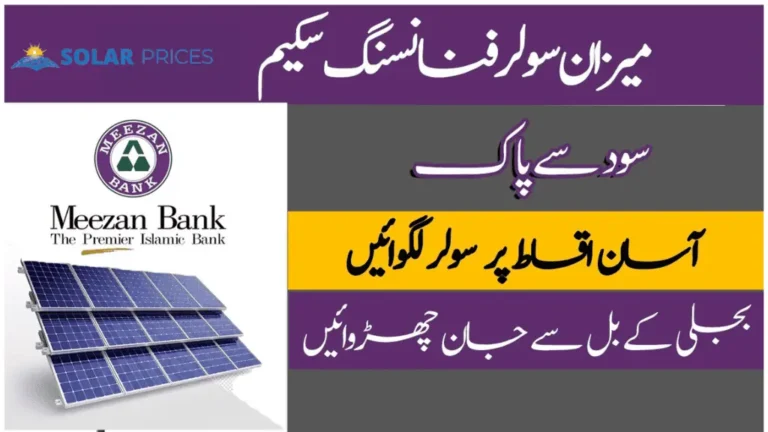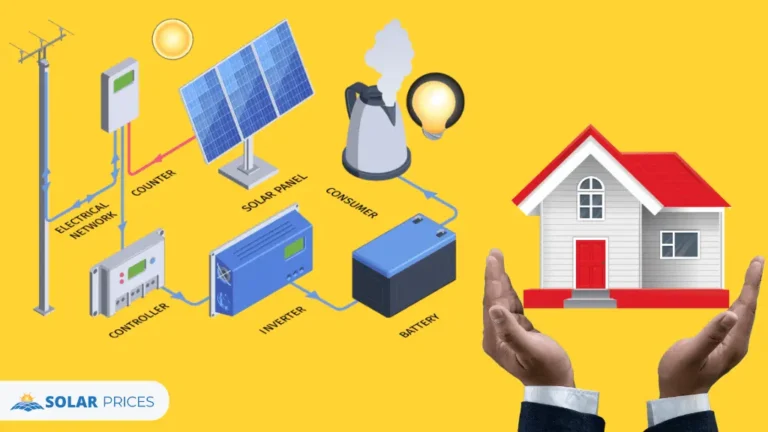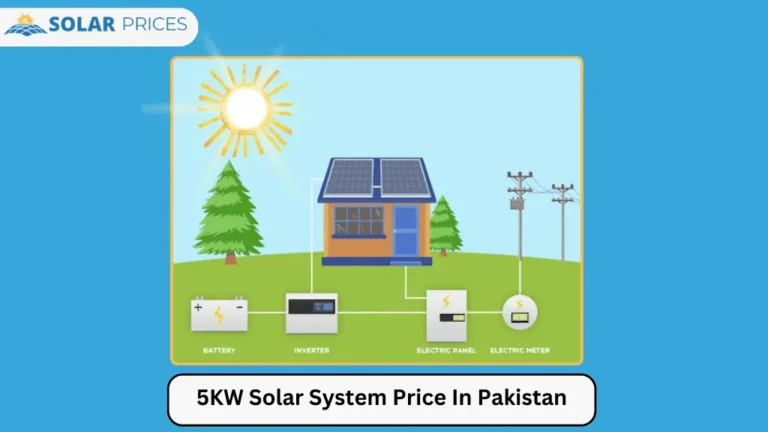What is Net Metering in Pakistan? Net Metering Eligibility Criteria
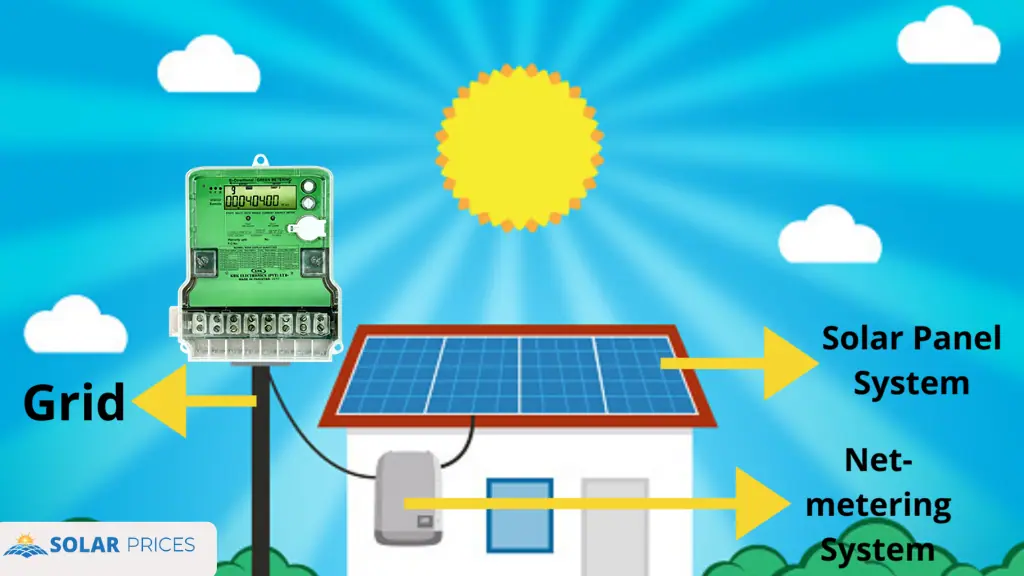
Grid-tied solar panels feed excess energy back to the electric grid via the same cables that supply power to homes at night. This happens when the solar panels produce more energy than a customer consumes.
The process of recording surplus energy produced by a solar installation and crediting it to the customer’s bill for energy taken from the grid is known as net metering in utility billing.
It’s a rather simple method of rewarding solar panel owners for their contributions, and for many years it has been the law in many parts of Pakistan. However, upon closer inspection, certain nuances and problems emerge, as with any matter involving utility corporations or the law.
Additionally, as the economics of using the grid become more complex, many communities are now starting to abandon net metering.
This article is a detailed guide on net metering, which covers its functions, availability, advantages and disadvantages, and substitute billing schemes followed by different countries.
What is Net Metering in Pakistan?
Net metering is a process that sells excess (more than required electricity consumption) electricity generated by the installed solar panel system back to the national grid, resulting in lower monthly electricity bills.
Solar system owners, however, cannot apply directly for net metering in Pakistan. If you want to take advantage of net metering, you must first contact an AEDB-registered solar provider.
You may benefit from HBL Solar Financing for Domestic & Commercial Users.
If you have a Meezan Bank account, you can apply for Meezan Bank Solar Financing
Net Metering Eligibility Criteria
Net metering offers an attractive incentive for solar energy system owners to offset their electricity costs and promote renewable energy adoption.
However, eligibility for net metering depends on various factors, including location, system size, metering equipment, compliance with interconnection standards, and application requirements.
Prospective solar owners need to understand the eligibility criteria and requirements specific to their region and utility provider before investing in a solar energy system. All the basic eligibility requirements are given in the following table:
| Connection type | 3 Phase Meter |
| Consumer Categories | Domestic, Commercial, Industrial |
| Solar Production Range | 1KW-10 MW |
| Voltage Level | 400V-11KV |
A Short Summary of Pakistan’s Net Metering
- Net metering ensures that every kilowatt-hour (kWh) of energy produced by a homeowner’s solar panels contributes equally to the reduction of their utility bills.
- The length of time credits can be carried over and the value of each credit varies between programs.
- Net metering has several advantages, including a high return on investment in solar panels, straightforward billing arrangements, environmental benefits, and lower infrastructure and fossil fuel power plant expenses.
- Some utilities say that net metering results in a “cost shift” that raises electricity costs for non-solar consumers.
- Many countries have abandoned net metering in recent years, favoring net billing, which provides reduced credits for all kWh transferred to the grid by solar owners’ installations.
You may want to explore: How to Apply for Net Metering in Pakistan.
Benefits of Net Metering for Pakistanis
Net metering has numerous advantages, some of which help the solar system owner, while others benefit the grid and society as a whole. Here are a few examples:
- Makes solar more financially feasible for households.
- Offers an easy way to credit solar owners for the energy their photovoltaic systems generate.
- Encourages new solar development on existing structures, lowering carbon emissions and preserving existing undeveloped ( agricultural ) land.
- Reduces the demand for new fossil-fueled power facilities.
- Reduces the need for new electricity transmission infrastructure, which is costly, controversial, and takes years to authorize, fund, and build.
Drawbacks and Controversy on Net Metering Globally
As solar advocates, we’d like to tell you that net metering has no disadvantages, but that’s not always the case.
Studies have found that solar is a net benefit to the grid when a small number of net-metered solar systems are interconnected, but things become more complicated as net metering reaches a threshold of 5% to 10% of peak demand.
Here are some of the disadvantages of net metering.
- Without time-of-use billing, the value of net metering credits is not modified based on the time they are generated.
- Too many net-metered solar installations lower grid demand throughout the day but do not help concerns during peak evening hours when the sun sets.
- Higher levels of two-way power flow may require an upgrade to the distribution grid when there are a lot of solar system installations in a limited area, which could increase costs for all customers.
- Because wealthy people can install solar panels and cut their energy bills almost completely, some utility companies argue that net metering represents a “cost shift” from higher-income to lower-income households, with those without solar having to pay a larger share of the fixed costs of maintaining the grid.
Since the claim of cost shift is primarily put forth by electric utility corporations themselves, it is challenging to properly comprehend the impact of the supposed “cost shift.”
For the past ten or so years, utility companies across the country have been promoting the cost-shift story as a way to discontinue net metering.
Frequently, these businesses don’t aim to create a solar energy system that lowers rates for their ratepayers; instead, they just want to destroy rooftop solar.
They either fail to propose a viable replacement plan that acknowledges the complete economic, environmental, and social advantages of solar power to the grid, or they use millions of rupees—sometimes derived from ratepayer money—to persuade legislators and public utility commissioners to overlook a large number of those advantages.
Alternatives to Net Metering On the International Stage
Around the world, there are a few different options for net metering, such as buy-all and sell-all, feed-in tariffs, and net billing. Below is a summary of some solutions as net metering alternatives:
Net Billing
When solar energy is utilized for household appliances under net billing, the homeowner’s electric bill is directly reduced by the entire retail cost of electricity; however, the energy that is supplied to the grid is credited at a reduced rate.
When a customer’s solar panels aren’t producing energy, the financial credits are added to their bill but they typically don’t cover the cost of the electricity they purchase from the grid.
The credits given to solar owners for energy sent during the sunniest portions of the day are frequently quite low, while the energy they must purchase from the grid in the evening is priced very highly. Net billing and TOU billing are sometimes combined.
As a result, net billing incentivizes solar energy system owners to install batteries, storing solar energy instead of selling it for a few rupees and using it in the evening to replace the utility’s on-peak power purchases.
One of the most notable instances of this kind of solar metering is currently adopted in California’s net billing. The California Public Utilities Commission decided to remove the state from its modified net metering system at the end of 2022.
Different payments for solar energy are made under the new Net Billing rate every hour of the day, every day of the year, and these payments are subject to monthly changes. Throughout the year, the value of solar energy exported is often close to zero.
Buy-all, Sell-all
In the worst-case situation for home solar energy, you might have to operate your system “parallel”—that is, “buy-all, sell-all”—with the utility grid.
“Buy-all, sell-all” refers to the practice of purchasing all the energy you require from the utility provider and feeding all the solar energy generated by your solar system into the grid. The feed-in tariff is the amount paid for solar energy in a buy-all, sell-all arrangement.
The price that these programs pay for each kilowatt-hour of solar energy is typically less than what the utility charges residential customers for the same energy. Thankfully, buy-all, sell-all plans are mandated in a few locations for solar owners.
Solar Self-consumption
A unique solar installation known as a “non-export system” can be installed by utility customers in numerous locations. So that it doesn’t get delivered to the grid, you must either use, store or lose the solar electricity.
When using a non-export system, you must install batteries to store extra electricity and reverse-power protection devices to stop power exporting in order to optimize your usage of solar energy. When needed, you can still obtain electricity from the grid.
Installing this kind of system on a house with a grid connection will still require you to contact your utility and probably pay an interconnection fee and/or other costs that the utility levies in order to guarantee that your system can be installed properly. These systems can get rather complicated.
Bottom line: Why does Net Metering Matter?
The most effective way to encourage common people to invest in renewable energy generation systems throughout Pakistan has been through net metering legislation.
Utilities like MEPCO, LESCO, K-Electric, and several others have affirmed the benefits of net metering and offered it too.
People can produce their own electricity and fight climate change nationwide thanks to net metering regulations.
Distributed generating assets, such as batteries, solar panels, and electric vehicles, will become increasingly significant as the grid gets more modern and decarbonized.
These assets will benefit solar system owners as well as the grid overall.
Faqs
What is net metering and how does it work?
Net metering enables solar panel owners to exchange surplus electricity with the grid, reducing energy bills and promoting renewable energy adoption.
How can I apply for net metering in Pakistan?
To apply for net metering in Pakistan, connect with an AEDB-registered solar provider. He will guide you through the application process and ensure compliance with regulatory standards.
What are the eligibility criteria for net metering?
Eligibility for net metering depends on factors such as location, system size, voltage level, and adherence to interconnection standards, ensuring a seamless energy exchange process.
What are the benefits of net metering?
Net metering offers numerous benefits, including financial savings for households, environmental sustainability, grid reliability, and promotion of renewable energy adoption.
Are there alternatives to net metering?
Yes, alternatives to net metering include net billing, buy-all, sell-all arrangements, and solar self-consumption setups, each offering unique advantages and challenges for solar panel owners. However such alternatives may not be available for all regions across the country.

